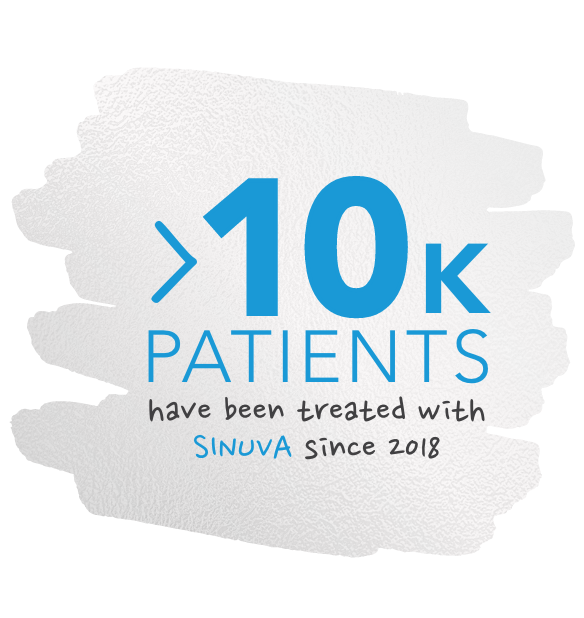DISCOVERING RELIEF WITH SINUVA
SINUVA is an option for the treatment of nasal polyps that’s been shown to provide effective relief, compared to daily steroid nasal spray† alone in a clinical trial with 300 patients.‡
†Mometasone furoate nasal spray.
‡ SINUVA was studied in a clinical trial with 201 patients who received SINUVA and daily steroid nasal spray, and 99 patients who were given daily steroid nasal spray alone. All patients were indicated for revision endoscopic sinus surgery at enrollment.

Placement of SINUVA

Your doctor will numb your nose using local anesthesia that takes 10-30 minutes to take effect.

Once your nose is numb it will take your doctor 5-10 minutes to place SINUVA into your ethmoid sinus.

In clinical trials, most patients (over 85%) felt no pain to mild pain/pressure following the placement.

SINUVA is designed to stay in your sinus and deliver medicine over the course of 90 days. Your doctor will remove SINUVA 90 days after placement or sooner.

SINUVA has a proven safety profile
Because SINUVA is placed directly among the nasal polyps, it provides targeted continuous symptom relief, with low rate of side effects.
In clinical trials||:

SINUVA demonstrated similar local effects and hypersensitivity reactions compared to daily steroid nasal spray alone

Patients treated with SINUVA and patients treated with daily steroid nasal spray alone experienced similar rates of side effects
The most common side effects were asthma, headache, and nosebleed. The most common side effects observed (in more than 1% of subjects and that occurred more frequently in patients who received SINUVA compared to patients who were given daily steroid nasal spray) in clinical studies were bronchitis, upper respiratory or middle ear infection, headache, lightheadedness, asthma, and nosebleed.
|| The safety of SINUVA was established in 400 patients in 2 clinical trials.
SINUVA patient experiences

Erika

Lee

Dorothy

Dana

